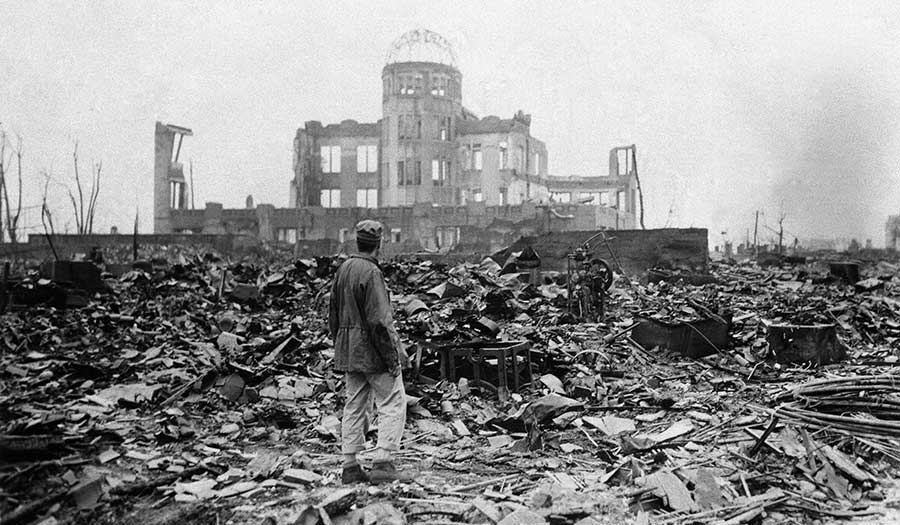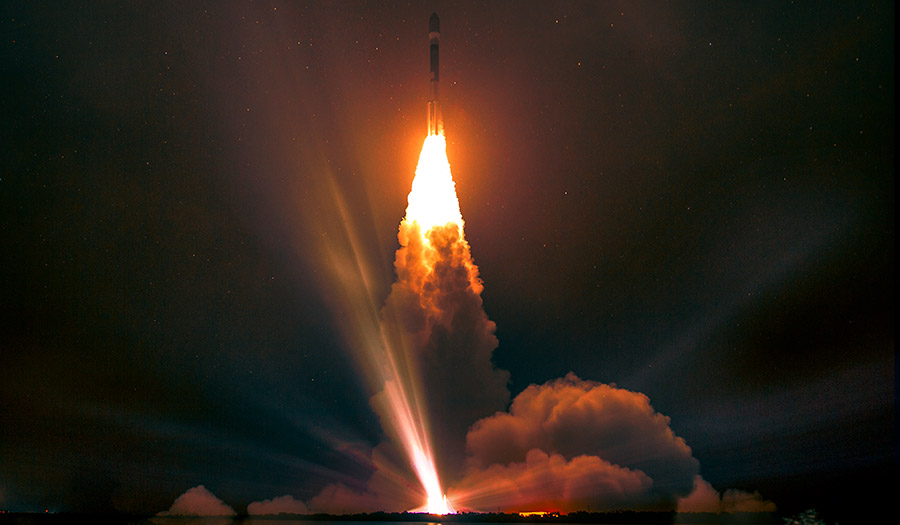 AP/Stanley Troutman
AP/Stanley Troutman
World News Desk
Learn the why behind the headlines.
Subscribe to the Real Truth for FREE news and analysis.
Subscribe NowBells tolled in Hiroshima on Thursday for the 75th anniversary of the world’s first atomic bombing. Though thousands usually pack the Peace Park in the center of the Japanese city to pray, sing and offer paper cranes as a symbol of peace, entrance was sharply limited and only survivors and their families could attend the memorial ceremony.
Survivors, their relatives and officials marked the 8:15 a.m. blast anniversary with a minute of silence.
“On August 6, 1945, a single atomic bomb destroyed our city. Rumor at the time had it that ‘Nothing will grow here for 75 years,’” said mayor Kazumi Matsui.
“And yet, Hiroshima recovered, becoming a symbol of peace.”
At 8:15 a.m. on Aug 6, 1945, U.S. B-29 warplane Enola Gay dropped a bomb nicknamed “Little Boy” and obliterated the city with an estimated population of 350,000. About 140,000 people were killed by the end of 1945, many thousands from injuries and radiation-related illnesses.
The U.S. dropped a second bomb three days later on Nagasaki, killing another 70,000. Japan surrendered August 15, ending World War II and its nearly half-century of aggression in Asia.
On Thursday, as cicadas shrilled in the heavy summer heat and the Peace Bell sounded, the crowd stood to observe a moment of silence at the exact time the bomb exploded.
But the decades since have seen the weapons stockpiling of the Cold War and a nuclear standoff among nations that continues to this day. Prime Minister Shinzo Abe, in his speech at the ceremony, said a nuclear-free world cannot be achieved overnight and it has to start with dialogue.
“Japan’s position is to serve as a bridge between different sides and patiently promote their dialogue and actions to achieve a world without nuclear weapons,” Mr. Abe said.
An aging group of survivors, known as hibakusha, feel a growing urgency to tell their stories, in hopes of reaching a younger generation. Their numbers are dwindling—with the average age about 83.
Thursday’s peace ceremony at the Hiroshima Peace Memorial Park was scaled down because of the coronavirus pandemic. The fewer than 1,000 attendees was one-tenth of those attending in past years.
“Seventy-five years is far too long not to have learned that the possession of nuclear weapons diminishes, rather than reinforces, security,” UN Secretary General Antonio Guterres said in a video message from New York for the occasion. “Today, a world without nuclear weapons seems to be slipping further from our grasp.”
This article contains information from Reuters and The Associated Press.
- Real Truth Magazine Articles
- INTERNATIONAL
 Nuclear War: Will Mankind Destroy Itself?
Nuclear War: Will Mankind Destroy Itself?
More on Related Topics:
- China Marks 75 Years of Communist Party Rule as Economic Challenges and Security Threats Linger
- What to Know About North Korea’s Unveiling of Its Uranium Enrichment Facility
- Students in Bangladesh Forced Out the Country’s Leader a Month Ago. Where Do Things Stand Now?
- In Myanmar’s Jungles, Young Volunteers Train Hard to Fight Junta
- Protests Toppled Bangladesh’s Government and Drove Powerful PM into Exile. How Did They Get Here?


